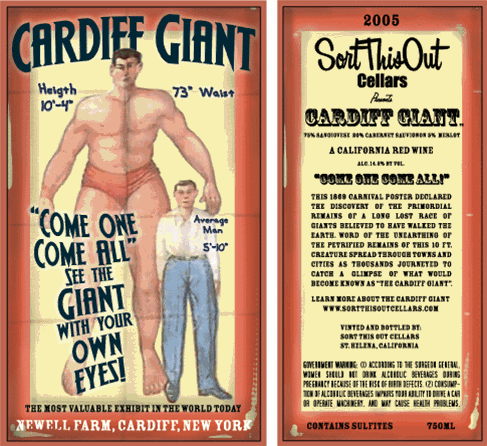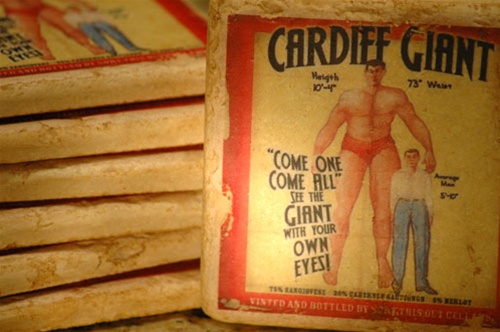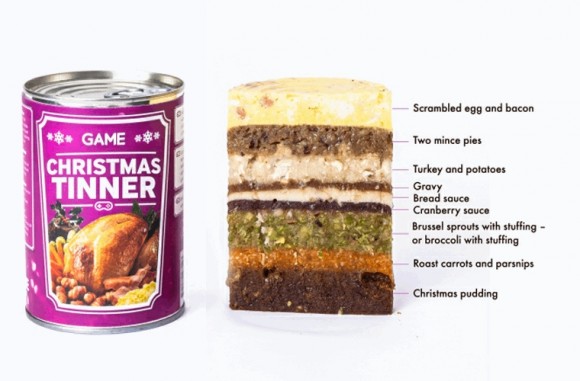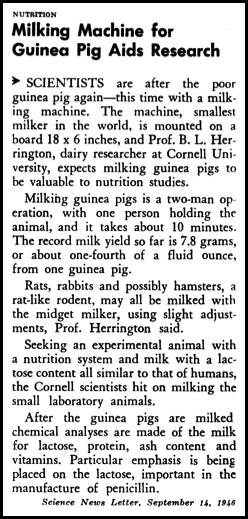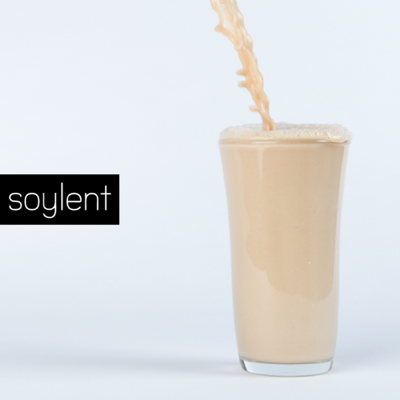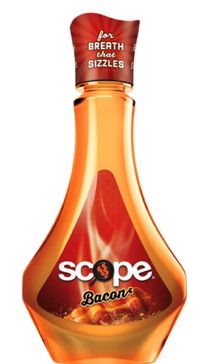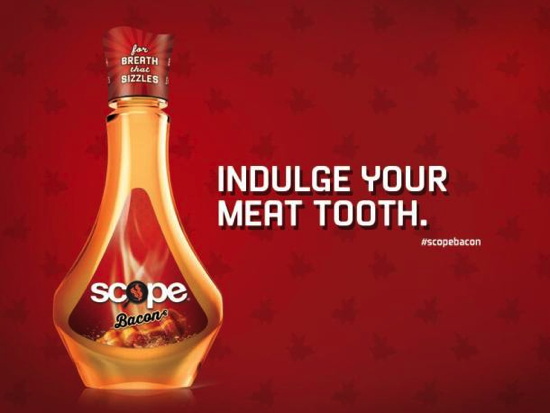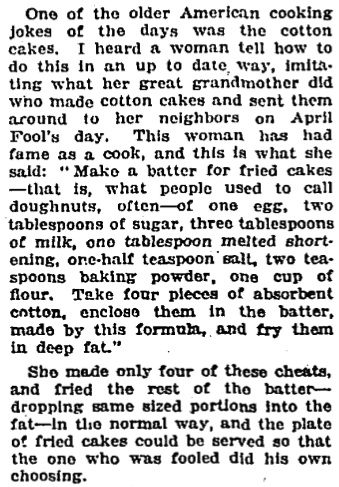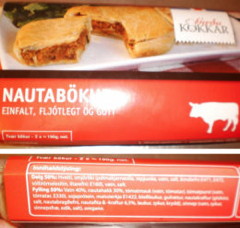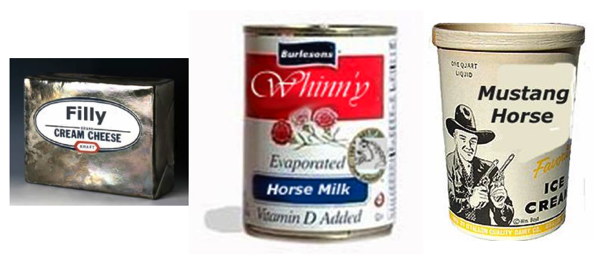Rat-Milk Cheese Redux —
Back in 2005, I posted about the website of
The Federation of Rodent Cheesemakers, promoters of rat-milk cheese. That website is suddenly back in the news, thanks to an article in Modern Farmer,
"Rat Cheese: Internet Hoax or Future Delicacy?"
The author (Sam Brasch) acknowledges that the Rodent Cheesemakers site is a spoof, but then he seriously addresses the question of how to make cheese from rat milk. He notes that you would need a lot of rats: "You’d need an army of 674 rats to produce the 31 kilograms of milk one dairy cow puts out each day."
But if you had that many rats, they might produce a surprisingly good product:
"Rat’s milk is high in protein (8 percent) and contains almost four times the fat by volume when compared to raw cow’s milk, so it would make a great brie and stand as a rich addition to a cup of coffee in the morning. A rodent dairy farm would also earn a stellar environmental report card. 674 rats would only produce .003 percent of the methane that comes from a dairy cow, so a piece le fromage de rat could end up being the most sustainable high-end cheese at the deli counter."
My thought here: depending on what you fed the rats, their milk might also be quite tasty!
But the
International Business Times has also weighed in on this issue and throws cold water on the promise of rat-milk cheese by pointing out, "We don't have milking machines small enough to make rat dairies a viable option."
But they're wrong about this. There are milking machines for rats. Back in 1946, Prof. B.L. Herrington of Cornell University designed a "midget milker" — the world's smallest milking machine mounted on a board 18x6 inches. He designed it primarily to milk guinea pigs, but also used it on rats, rabbits, and hamsters. A
Science News Letter article noted that "milking guinea pigs is a two-man operation, with one person holding the animal, and it takes about 10 minutes."
I haven't been able to find any pictures of Herrington's midget milker in action, but there is a diagram of it in a 1951 article in the
Journal of Nutrition (
"Milking Techniques and the Composition of Guinea Pig Milk").
So there wouldn't be a technological problem with milking rats. It could be done. The problem would be the labor involved. It would take too long to milk enough rats to produce a decent amount of cheese. So it would never be done except as a one-off thing.



